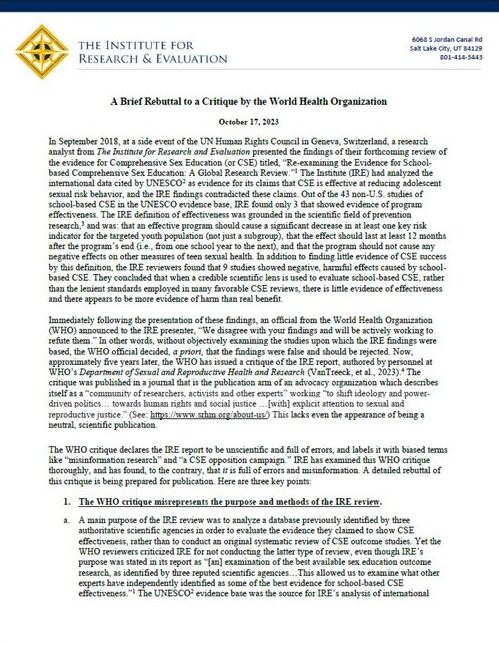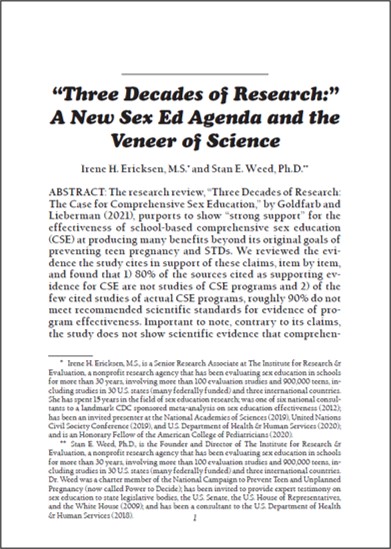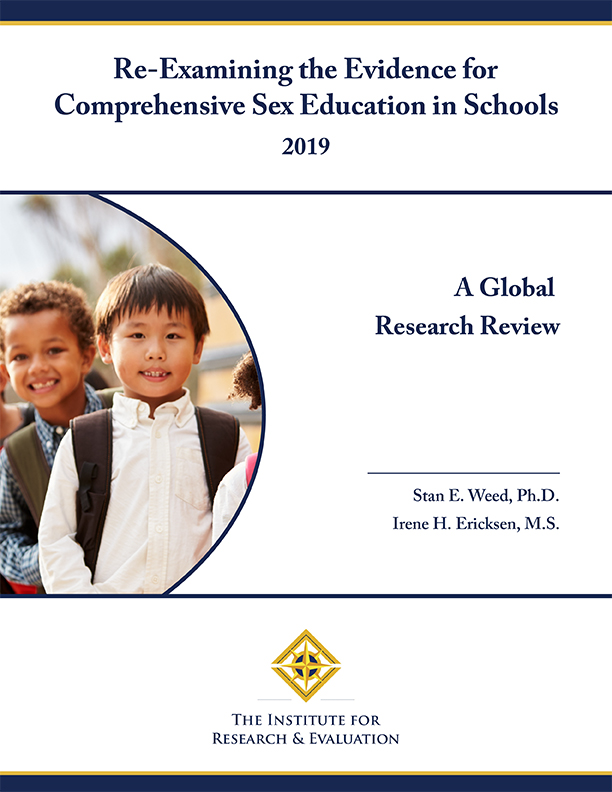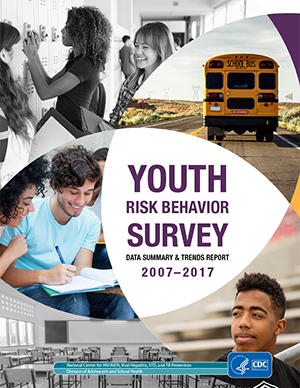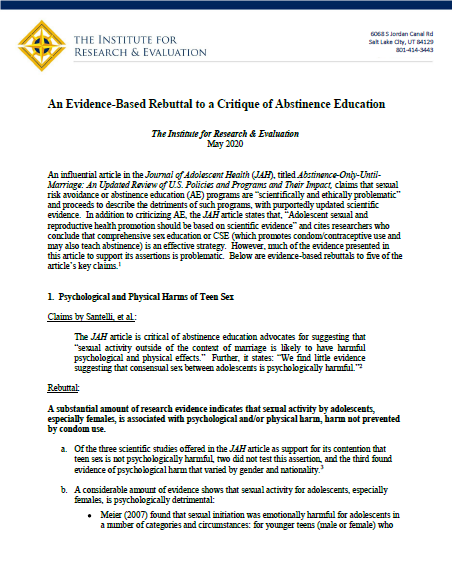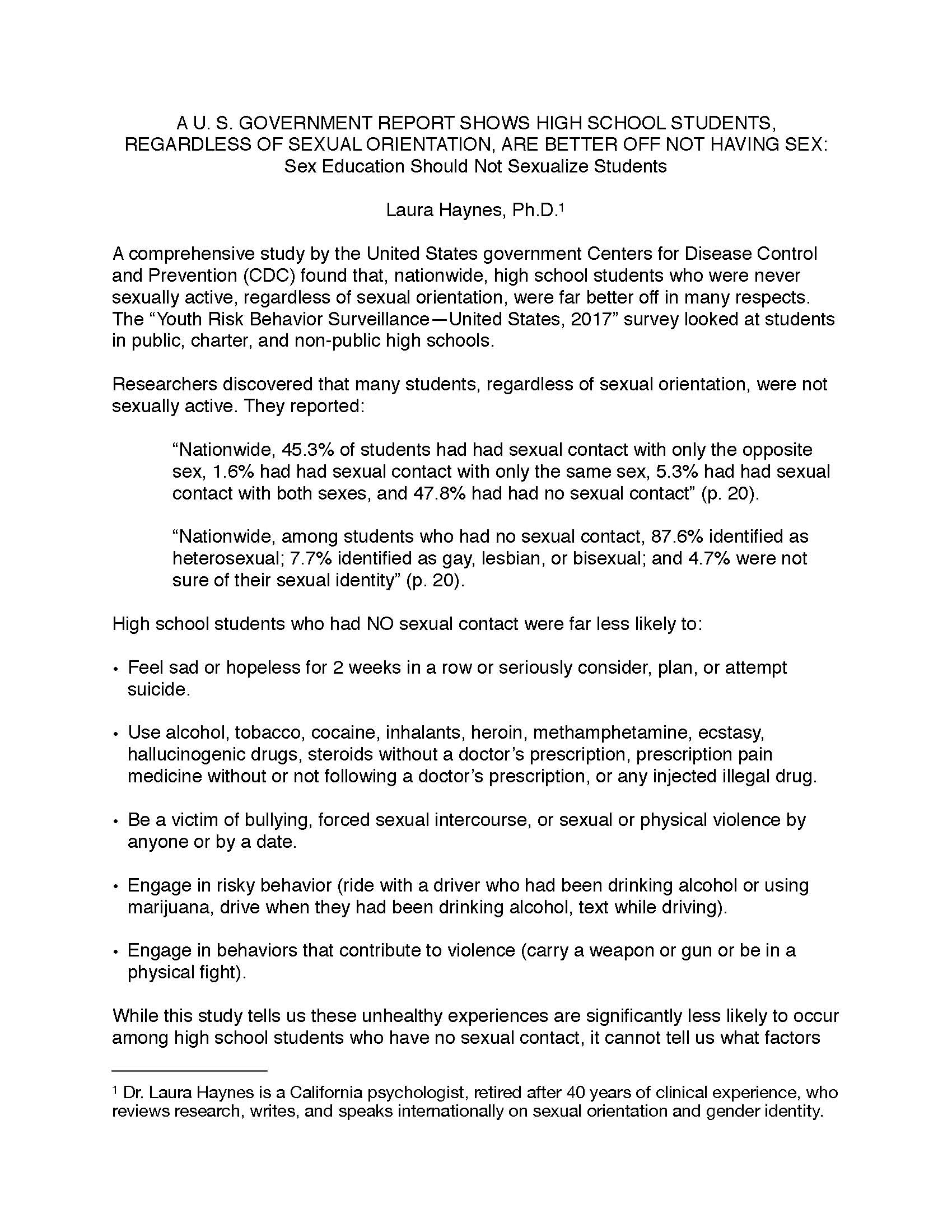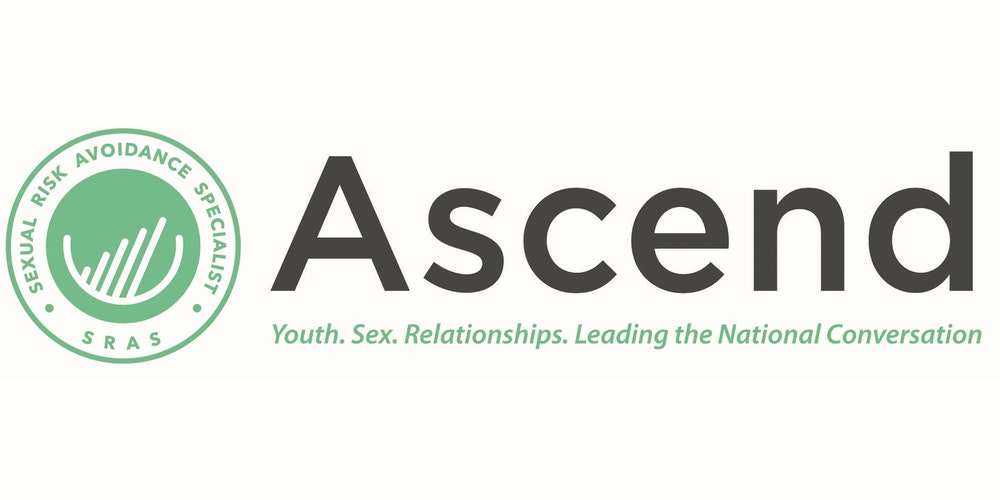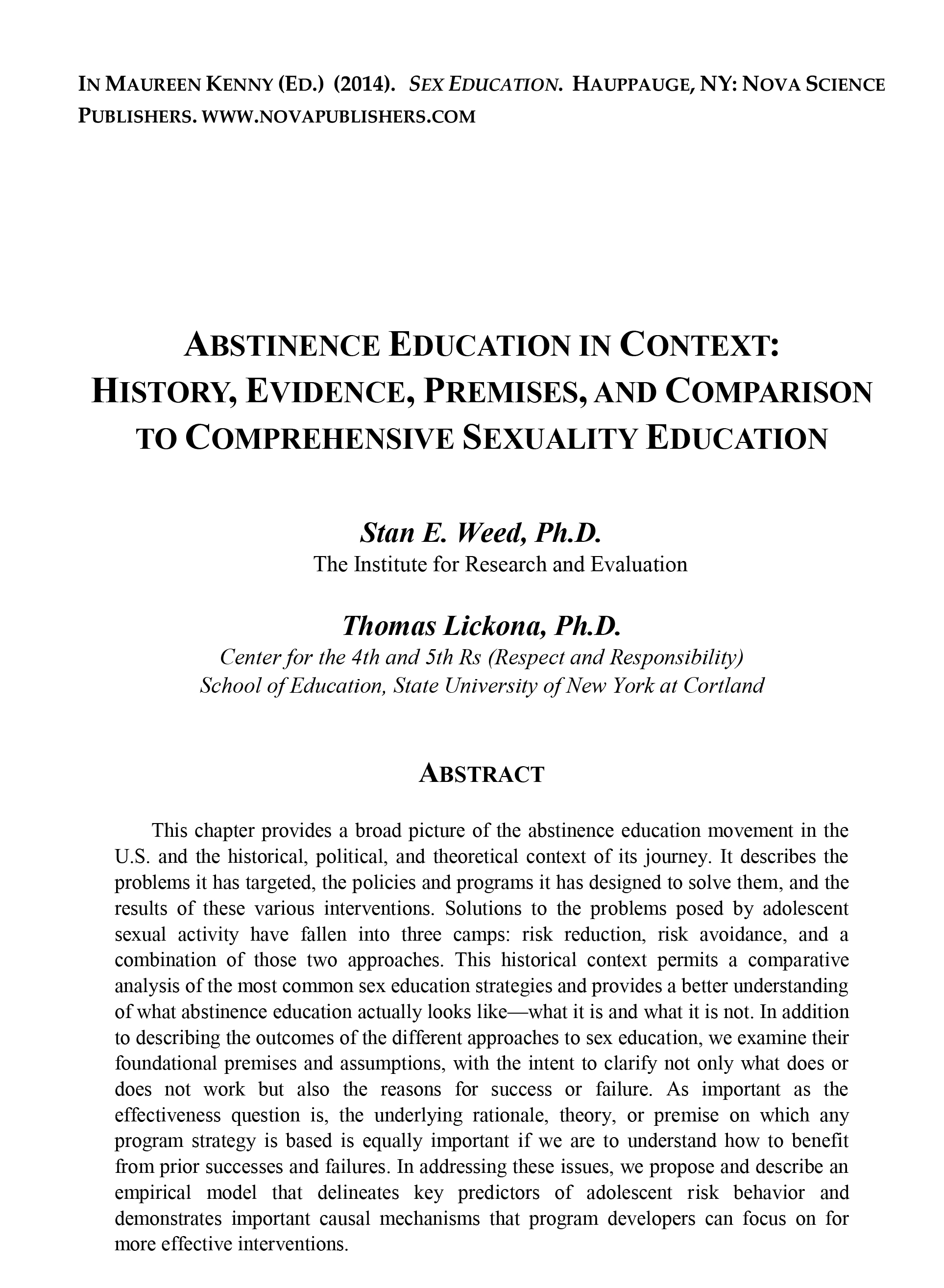“A Brief Rebuttal to a Critique by the World Health Organization” (2023)
Following a presentation at a UN event of IRE’s “Re-examining the Evidence for School-based Comprehensive Sex Education: A Global Research Review,” which showed the ineffectiveness of CSE programs, an official from the World Health Organization announced to the IRE presenter that they disagreed with the findings and would work to refute them. Now, approximately five years later, the WHO has issued a critique of the IRE report, authored by personnel at WHO’s Department of Sexual and Reproductive Health and Research. The WHO critique declares the IRE report to be unscientific and full of errors and labels it with biased terms like “misinformation research” and “a CSE opposition campaign.” IRE has examined this WHO critique thoroughly, and has found, to the contrary, that it is full of errors and misinformation. A detailed rebuttal of this critique is being prepared for publication.
“Three Decades of Research”: A New Sex Ed Agenda and the Veneer of Science (2023)
The Case for Comprehensive Sex Education,” by Goldfarb and Lieberman (2021), purports to show “strong support” for the effectiveness of school-based comprehensive sex education (CSE). Contrary to its claims, the study does not show scientific evidence that comprehensive sex education helps prevent child sex abuse, reduces dating/intimate partner violence or homophobic bullying, or that it should be taught to young children in the early grades.
Ericksen, I. H. & Weed, S. E. (2023). “Three Decades of Research”: A New Sex Ed Agenda and the Veneer of Science. Issues in Law & Medicine, 38(1), 27-46.
Re-Examining the Evidence for Comprehensive Sex Education in Schools: A Global Research Review (2019)
CSE programs in schools fail to demonstrate effectiveness at reducing teen pregnancy and STDs—some actually increase pregnancy and risky sexual behaviors.
Based on the published study:
Ericksen, I. H. and Weed, S. E. (2019). “Re-Examining the Evidence for School-based Comprehensive Sex Education: A Global Research Review.” Issues in Law and Medicine, 34(2), 161-182.
The Youth Risk Behavior Survey Data Summary and Trends Report
U.S. Centers for Disease Control and Prevention
The report provides the most recent surveillance data on health behaviors and experiences among high school students across the country. It reports on risks that contribute to the leading causes of death and disability among youth and young adults and uses YRBS data to focus on four priority focus areas associated with STDs, including HIV, and unintended teen pregnancy:
- Sexual Behavior
- High-Risk Substance Use
- Violence Victimization, and
- Mental Health and Suicide
An Evidence-Based Rebuttal to a Critique of Abstinence Education
The Institute for Research & Evaluation
An influential article in the Journal of Adolescent Health titled “Abstinence-Only-Until Marriage: An Updated Review of U.S. Policies and Programs and Their Impact,” claims that sexual risk avoidance or abstinence education programs are “scientifically and ethically problematic.” However, much of the evidence presented in this article to support its assertions is problematic. This rebuttal contains evidence that refutes five of the article’s key claims.
“A comprehensive study by the United States government Centers for Disease Control and Prevention (CDC) found that, nationwide, high school students who were never sexually active, regardless of sexual orientation, were far better off in many respects.” Read More
“Newly released research gauged the effectiveness of the Teen Pregnancy Prevention Program from 2010-2014. In some cases, students were more likely to engage in risky behavior as a result of their participation in the program…” Read More
Summary of Findings from TPP Program Grantees (FY2010-2014)
Office of Adolescent Health
“…For youth who had ever been sexually active before the study began, treatment group members were significantly more likely to report having had sexual intercourse in the last 90 days than their control group counterparts. Treatment group members who were White were significantly more likely to report having had oral sex in the prior 90 days and oral sex without a condom in the last 90 days than their control group counterparts…” Read More
Federally Funded Teen Pregnancy Prevention Programs: Not What They Claim to Be
This Institute for Research & Evaluation
“Congress has approved $75,000,000 in 2010 funding to establish a federal Teenage Pregnancy Prevention initiative “for the purpose of replicating evidence-based programs that have been proven through rigorous evaluation to reduce teenage pregnancy, behavioral risks underlying teenage pregnancy, or other associated risk factors” (p. 3). Twenty-eight prevention programs have been certified as meeting these criteria, and have been federally endorsed and recommended for funding and widespread distribution. However, when the research on these programs is scrutinized according to recommended standards for program effectiveness the evidence does not support the claim that they are “proven to be effective through rigorous evaluation” (p.4)…” Read More
All Risks Factors Are Important in Assessing Adolescent Suicide
American College of Pediatricians (2016)
“In studies that controlled for confounding factors, sexually active adolescent females were found to be three times as likely to report being depressed and three times as likely to have attempted suicide when compared to sexually abstinent females. Sexually active males were more than twice as likely to suffer from depression and seven times as likely to have attempted suicide when compared to sexually abstinent males. Teen females with sexual experience were three times and males eight times more likely to have attempted suicide than were virgin teens. Among adolescent females, depression is not consistently followed by sexual activity, but sexual activity is frequently followed by depression…” Read more
ABSTINENCE EDUCATION IN CONTEXT: HISTORY, EVIDENCE, PREMISES, AND COMPARISON TO COMPREHENSIVE SEXUALITY EDUCATION
Stan H. Weed, Ph.D., and Thomas Lickona, Ph.D. (2014)
“This study provides a broad picture of the abstinence education movement in the U.S. and the historical, political, and theoretical context of its journey. It describes the problems it has targeted, the policies and programs it has designed to solve them, and the results of these various interventions. In addition to describing the outcomes of the different approaches to sex education, the study examines their foundational premises and assumptions, with the intent to clarify not only what does or does not work but also the reasons for success or failure.” Read More



